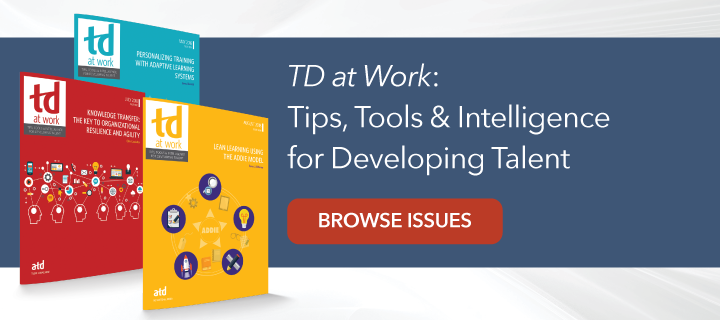“If business has learned anything from the pandemic, it’s that everything can be turned upside down in a matter of weeks. This isn’t the last crisis we’ll face; organizations need to embed change management in their DNA,” notes Fast Company’s article “The Surprising Way to Build a Productive Organization in 2021.” While the article focused on office design, having a productive organization from a talent perspective means being ready to be upended at any moment.
In “Competency Framework: Build for Tomorrow” Michael Ganeles and Joe Sillner write of the current challenges where we’re being asked to pivot, shift strategy, and learn how to be successful in the new world of work. “Leaders and employees are also wondering what skills they will need to be successful in this new reality. What is certain is that they need to be agile and adapt their skill set to meet their industry’s ever-evolving needs.”
Having a leadership competency framework allows organizations to shift more readily and easily. Competencies can be called by different names, such as leadership expectations, and are “a cluster of behaviors and abilities—such as interpersonal, leadership, and business management skills—that define effective performance in a role.” When business is disrupted, such as by a merger and acquisition, new product line, or by a pandemic, it’s important to revisit the competency framework to determine whether it is up to date and the necessary behaviors still hold true.
Questions to Ask About Your Talent
An organization’s required competencies, as the authors note, should be analyzed at the individual, department, and enterprise level. To do so, a talent development professional can ask several questions.Individual:
- Who should we hire or promote?
- Does the individual deserve a raise based on their accomplishments?
- Who should be on a high-potential development track?
Department:
- Do we have enough skills and knowledge across leadership levels to get us where we want to go?
- At this level, what are our skills gaps?
- Where should we focus our development efforts?
Enterprise:
- Do we have the talent we need to drive organization-wide initiatives?
- Do our leaders reflect the diversity of the customers we serve?
- At the enterprise level, what behaviors are required to meet the employee and customer experience we want to be known for?
Build or Update a Strong Framework
A competency framework needs to align with the organizational strategy. Further, as Ganeles and Sillner point out, HR leaders shouldn’t determine the organizational competency framework by themselves. Instead, “Input from subject matter experts, such as senior leadership, and leaders across various levels and functions should drive your framework.”Another important facet to remember is to create a framework that includes observable behaviors. Rather than saying the sought-after behavior is “sound decision making,” define what that is. This may include aspects such as fully identifying and understanding problems by gathering and analyzing quantitative and qualitative information, choosing the best way forward through clear decision criteria, and making timely decisions and acting based on those facts and constraints.
Different organizational levels will have different competencies—for example, an individual contributor won’t need to have the strategic lens that senior leaders require—but don’t differentiate just to differentiate. Doing so will only make things more complicated than they need to be. So, a framework might include decision-making skills and behaviors for both individual contributors and frontline leaders. Meanwhile, midlevel leaders may require operational decision-making abilities, while senior-level leaders should exemplify strategic decision making.
Benefits of a Strong Framework
A strong, current competency framework is a critical factor to keeping your organization future ready. It will allow talent development team members and others to understand what behaviors to hire for and whom to put on a fast-track development program for succession purposes, and it will contribute to performance management discussions.Given what we saw in 2020, can you afford not to revisit your competency framework?




